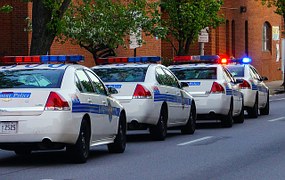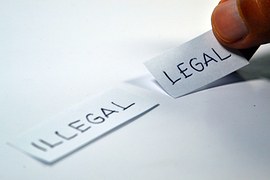If Baltimore Police Stop Your Car, How Long Can They Keep You There?
If a police officer has ‘reasonable suspicion’ to believe criminal activity is underway, in or connected with the use of a car, the law permits them to initiate a traffic stop.
Perhaps the archetypal, quintessential, prototypical, paradigmatic, textbook valid reason justifying such a stop where the officer witnesses a violation of the traffic laws. Such observations, if believed, will always justify a roadside stop.
The officer may obtain general identifying and licensure information.
Since the 60s, courts have held that a police officer needs no particularized suspicion to approach someone and ask them their name, or address. The courts call such interaction “consensual encounters”, and, to courts, although perhaps not in actuality, the citizen is free to walk away with answering. The Baltimore City Police Department may refer to such encounters as “field interviews”. The rationale here is the same. Police can ask your name or address, and see if you have a valid license- or warrant.
Once the stop commences, the officer must investigate the circumstances that led to the stop with reasonable diligence.
The officer is charged with a duty to confirm, or dispel, their reasonable suspicion as quickly as possible under the circumstances, and by using the least intrusive methods available to investigate. As an example, suppose there is an APB for four bank robbers in a grey sedan. As Attorney Eric T. Kirk will tell you.

An officer pulls over a gray sedan in the general area, but there is only one person in the car. The driver says they are on their way to work, and has a work id badge consistent with their story. In that circumstance, would there be any basis to detain that individual to be fingerprinted, and then have those fingerprints matched against those found in the bank? Likely not. There are other methods available to dispel the notion that this is the sedan the police seek. It would be an unreasonable intrusion, in a constitutional sense, to require more detailed, more elaborate, and more time-consuming investigation.
The officer cannot go on a fishing expedition to uncover other unrelated heretofore unknown incriminating information.
A common scenario involves an offer getting a vehicle on the on side of the road for a relatively minor traffic infraction. To emphasize, this is a perfectly valid basis to get the car on the side of the road. But what happens from that point may transform a lawful stop into an unlawful one.

These are sometimes called scope violations. In other words, if the driver is detained for a period longer than is necessary to confirm or corroborate the officer’s suspicion, the stop may transform from a lawful into an illegal detention. In a related scenario, if an officer is satisfied one way or the other regarding the reason for the stop, but launches into a “secondary investigation” about unrelated, potentially criminal activity, and detains the driver further for this investigation, the stop may be transformed into illegal detention. This can become an enormously fact-dependent inquiry, for if the officer develops an independent, additional reasonable suspicion, about additional criminal activity, then an additional, prolonged detention may pass constitutional muster.
Whether the initial stop is not supported by a reasonable suspicion, and therefore unlawful, or where the stop transformed into an illegal one because it exceeds a constitutionally permissible scope- the remedy is the same. A skilled criminal defense lawyer will be able to keep any evidence uncovered as a result of the unconstitutional law enforcement action from being used in evidence at trial, utilizing a remedy called suppression.



